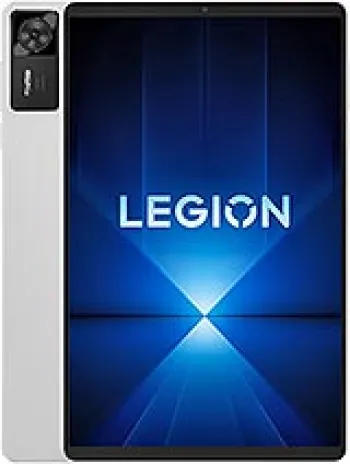
Introduction to Lenovo A880
The Lenovo A880, released in January 2014, was among the earlier attempts by Lenovo to penetrate the smartphone market with a large-screen device. Though considered a mid-range phone at its time, the A880 possessed several features that made it competitive. This article delves into the specifications and features of the Lenovo A880, providing a detailed analysis of its capabilities and performance.
Design and Build
The Lenovo A880 comes with a sleek and modern design, featuring dimensions of 164 x 85.4 x 9.3 mm, making it a sizeable device suitable for users who prefer larger screens. Weighing 196 grams, the phone offers a solid and sturdy feel, which was a salient trend for smartphones of its time. The device supports Dual SIM functionality, emphasizing its flexibility for users who manage multiple phone lines.
Display
The phone's display is a standout feature, with a 6.0-inch IPS LCD screen. This large display offers a resolution of 540 x 960 pixels, presenting content with a pixel density of approximately 184 ppi. Despite not being HD, the screen provides decent color reproduction and brightness for day-to-day usage and media consumption.
Performance
Under the hood, the Lenovo A880 is powered by a Mediatek MT6582M chipset with a 28 nm process. It houses a quad-core 1.3 GHz Cortex-A7 CPU and a Mali-400MP2 GPU, ensuring adequate performance for everyday tasks. Though not designed for heavy gaming, it manages light multitasking and standard applications smoothly.
Memory and Storage
The device is equipped with 1GB of RAM and 8GB of internal storage, a standard for mid-range devices at the time of its release. It includes a dedicated microSDXC slot, allowing users to expand storage based on their needs, alleviating potential storage issues associated with its modest internal capacity.
Camera Features
The Lenovo A880 sports a 5 MP autofocus rear camera, complemented by an LED flash for improved low-light performance. Although not at par with the advanced camera systems seen in modern smartphones, it provides satisfactory photo quality for casual photography. The device's front camera is a VGA unit, adequate for basic selfie needs.
Battery Life
Powering the Lenovo A880 is a removable Li-Ion 2500 mAh battery. This capacity, typical for its time, supports a full day of regular use, provided the device is not excessively strained with high-performance apps or prolonged screen time. The removable nature of the battery is a plus for users who prefer the flexibility of carrying spare batteries.
Connectivity and Network
In terms of connectivity, the Lenovo A880 offers GSM / HSPA network compatibility, ensuring decent speed and coverage. It includes Wi-Fi 802.11 b/g/n with hotspot capability, Bluetooth 4.0, microUSB 2.0 port, GPS, and an FM radio feature, covering the basic connectivity needs of most users.
Audio and Sensors
The device features a standard 3.5mm headphone jack and includes a loudspeaker for audio output. Sensor-wise, it is equipped with an accelerometer and proximity sensor, providing basic sensing capabilities suitable for general use but not equipped with more advanced sensors like gyroscope or compass, which are common in newer models.
Software
The Lenovo A880 runs Android 4.2.2 (Jelly Bean), an iteration of Android known for its smooth interface and decent array of features. However, users looking for the latest apps and operating system enhancements might find its outdated OS version limiting.
Market Position and Price
Originally retailing around 130 EUR, the Lenovo A880 was well-positioned in the budget to mid-tier market segment. Although discontinued, its competitive pricing and specifications rendered it an attractive option for users seeking an affordable large-screen smartphone at the time of its release.
Conclusion
Overall, the Lenovo A880 brought together a generous display size, dual SIM capability, and functional performance at an accessible price point. While it may not cater to high-end gaming or advanced photography needs, its features were commendable for general use, making it a preferred choice for budget-conscious consumers during its market tenure.
Key Features of Lenovo A880
- Network: Supports GSM / HSPA with Dual SIM functionality
- Display: 6.0 inches IPS LCD, providing a large viewing area
- Platform: Powered by Quad-core 1.3 GHz Cortex-A7 CPU
- Memory: Offers 8GB internal storage, expandable via microSDXC
- Main Camera: 5 MP with autofocus and LED flash
- Battery: Removable Li-Ion 2500 mAh battery for flexibility and convenience
- Connectivity: Equipped with Wi-Fi, Bluetooth 4.0, GPS, and microUSB 2.0
- Additional Features: FM radio, accelerometer, and proximity sensors included
- Audio: Features a 3.5mm jack and loudspeaker
Drawbacks of Lenovo A880
- Discontinued model, no longer supported by Lenovo.
- Low display resolution of 540 x 960 pixels.
- Outdated Android 4.2.2 (Jelly Bean) operating system.
- Limited internal memory of 8GB and only 1GB RAM.
- Basic camera quality with a 5 MP main camera and VGA selfie camera.
- No NFC support.
- Relatively heavy and bulky with a weight of 196g.
- Low pixel density of approximately 184 ppi.
- Modest battery capacity of 2500 mAh.

View Also
More Phones
All Rights Reserved +14267 Phones © Mobilawy 2025

























